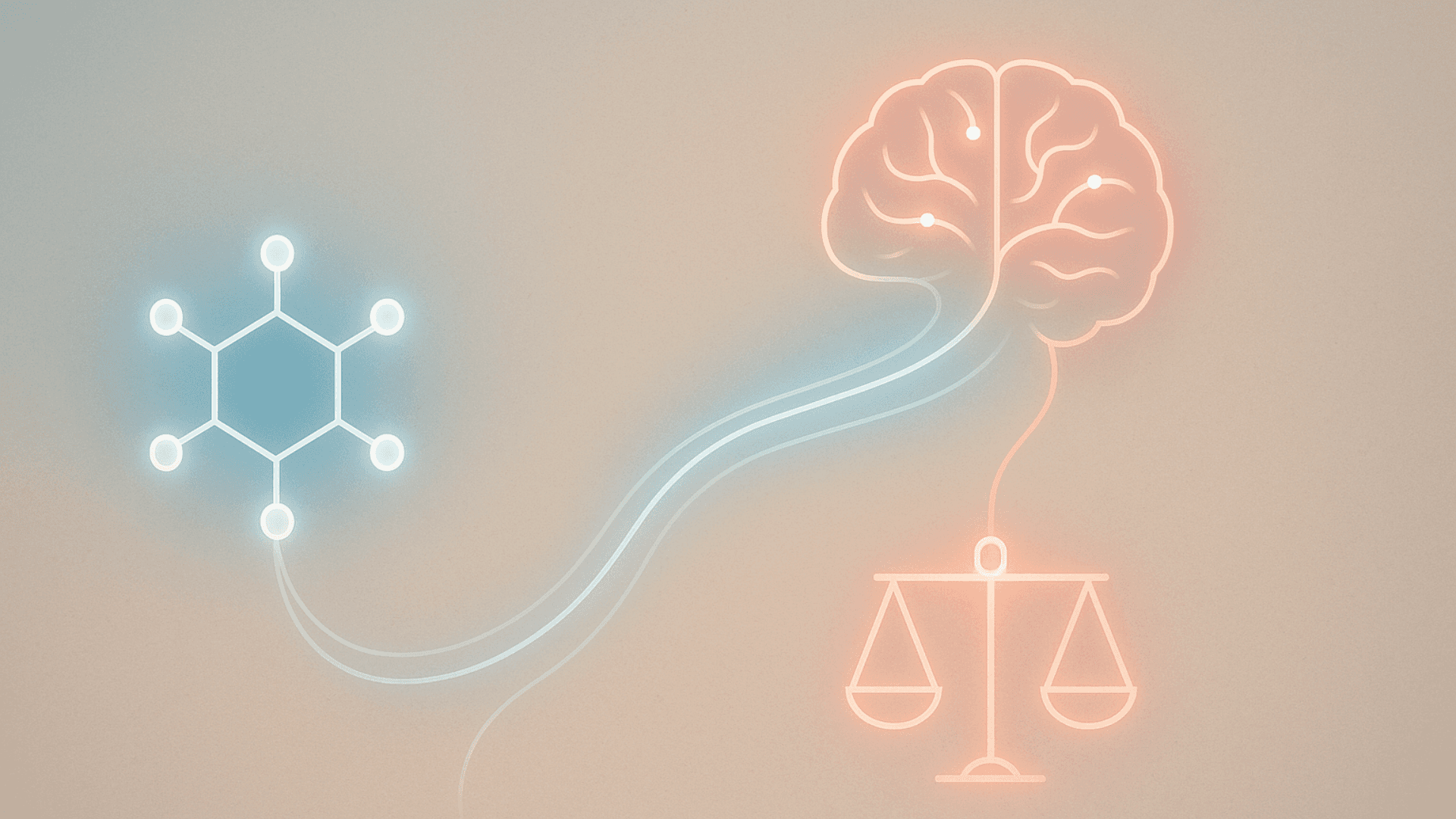How Does Inositol Affect Hormones and Neurotransmitters?
A science-backed guide on how Inositol impacts hormonal balance and brain chemistry. Learn how it lowers testosterone in PCOS and supports neurotransmitters like serotonin.

Inositol, particularly myo-inositol and D-chiro-inositol, plays a crucial role in regulating hormones and neurotransmitters, making it a valuable supplement for conditions like PCOS and mental health issues. This article explores how inositol influences key hormones like testosterone and insulin, as well as neurotransmitters such as serotonin and dopamine, based on recent 2025 research. If you're curious about its effects on hormonal balance or brain chemistry, read on for science-backed insights.
Inositol's Impact on Hormones: The Basics
Inositol acts as a second messenger in cellular signaling, directly influencing hormone production and sensitivity. In PCOS, where hormonal imbalances are common, inositol helps restore equilibrium by targeting insulin resistance—a root cause of elevated androgens.
- Insulin and Metabolic Hormones: Myo-inositol improves insulin sensitivity, reducing high insulin levels that trigger androgen overproduction in the ovaries.
- Reproductive Hormones: It supports estrogen and progesterone balance, promoting regular ovulation and fertility.
Does Inositol Lower Testosterone in Women?
Yes, inositol—especially myo-inositol—has been shown to lower testosterone in women with PCOS by addressing hyperandrogenism. High testosterone leads to symptoms like acne, hirsutism, and irregular periods; inositol counters this through:
- Reducing Androgen Synthesis: It inhibits ovarian steroidogenesis, decreasing free testosterone levels by up to 30% in studies.
- Improving SHBG Levels: Boosts sex hormone-binding globulin, which binds excess testosterone, making it less active.
- Timeframe for Effects: Noticeable reductions in androgens can occur within 3-6 months of consistent use.
This makes inositol a natural alternative to medications like spironolactone for androgen management.
This makes inositol a natural alternative to medications like spironolactone for androgen management. For women with PCOS, achieving these results is most effective when using the clinically proven 40:1 ratio of Myo to D-Chiro Inositol.
How Inositol Influences Neurotransmitters for Mental Health
Beyond hormones, inositol modulates neurotransmitters like serotonin and dopamine, supporting brain function and mood regulation. This is particularly relevant for PCOS patients, who often experience anxiety or depression due to hormonal fluctuations.
Key Effects:
- Serotonin Enhancement: Inositol increases serotonin signaling, helping alleviate mood disorders and reduce cravings.
- Dopamine Regulation: It balances dopamine pathways, potentially easing symptoms of ADHD or low motivation.
- Overall Brain Benefits: Preliminary 2025 data links it to better neurotransmitter balance in stress-related conditions.
Doses around 12-18 grams daily have shown promise for mental health, but start lower for PCOS.
Practical Applications and Considerations
For optimal results, combine inositol with a balanced diet and exercise. Women with PCOS may see hormonal improvements faster with the 40:1 ratio. Always consult a doctor, as interactions with antidepressants could occur.
In summary, inositol positively affects hormones by lowering testosterone and improving insulin balance, while supporting neurotransmitters for better mental health.
References
- PCOS and Inositols – Advances and Lessons We are Learning. A Narrative Review
- PCOS and Inositols - Advances and Lessons We are Learning. A Narrative Review
- nositol – multidimensional support for metabolic and mental health
- Therapeutic potential of inositol to PCOS: An overview of administration, efficacy and potential applications
Frequently Asked Questions
No. While studies show inositol can support mental health, it should never replace prescribed medication without a doctor's supervision. It can be used as a complementary therapy, but you must consult your healthcare provider to avoid interactions.
Most clinical studies indicate that a noticeable reduction in free testosterone levels and related symptoms like acne or hirsutism can be observed after 3 to 6 months of consistent daily supplementation.
Yes. Doses for PCOS are typically 2,000-4,000 mg of myo-inositol daily. In contrast, studies for mental health conditions like anxiety or OCD have used much higher doses, often ranging from 12 to 18 grams (12,000-18,000 mg) per day.